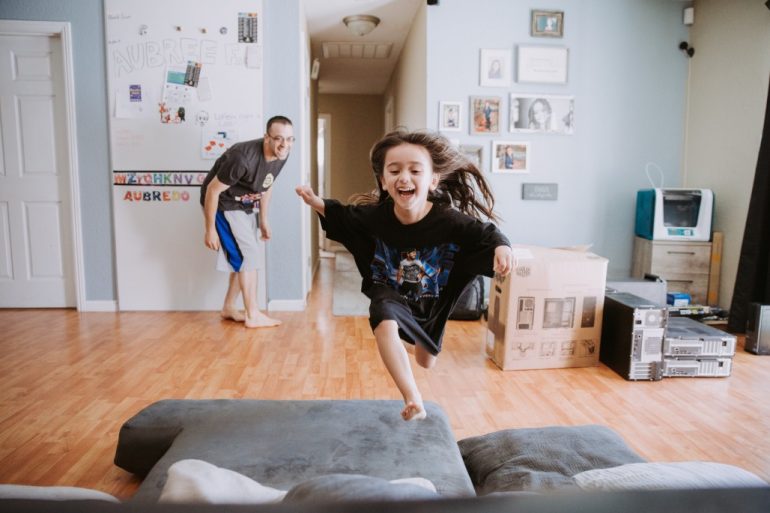6 Simple Strategies for Keeping Up With High-Energy Kids
Set Boundaries and Be Consistent
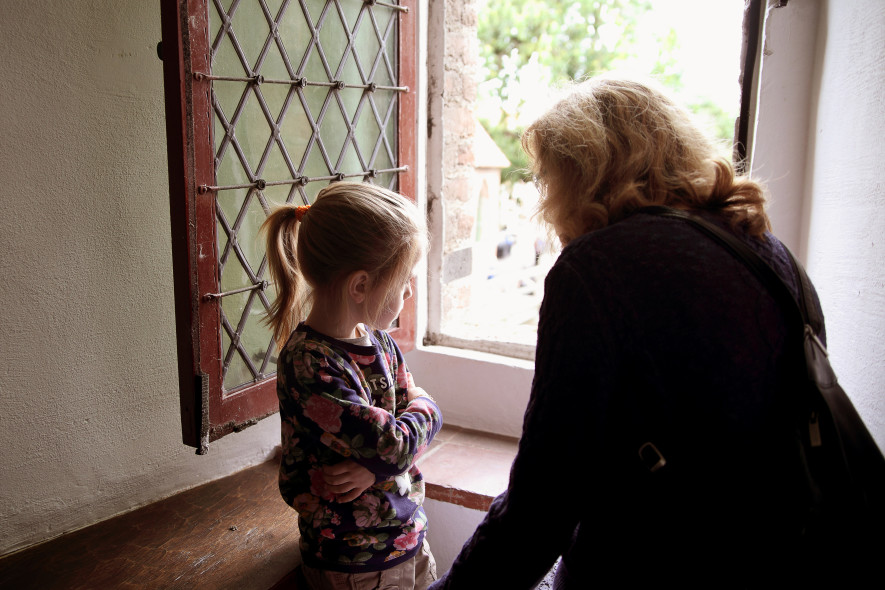
First, let’s make one thing super clear: kids need boundaries.
Some kids are just born busy, and some have sensory issues which can mimic behavioral problems. But regardless of your child’s situation, boundaries are the foundation that calm days are built on (and happy parents).
It’s okay to let kids be kids, but where there’s a line, draw it, and make it really clear that it’s one there are consequences for crossing. In situations where children don’t have limits or boundaries set up, they can be all over the place.
If you have a younger child and they do something wrong, get down to their level, make eye contact, and use a gentle tone to describe what you will and will not allow. Next, ask your little one to repeat it back to you.
If the behavior continues, stay consistent with this type of correction. If you feel time-out is also necessary, then put them in time-out. A good rule of thumb for parents who believe in using time-out is to a lot one minute per year of age.
Tame the Movement Itch

Is getting your little one to sit still at the dinner table proving to be more of a task than you expected? If so, tackle the movement itch like a genius!
If your child has a difficult time sitting still at the dinner table, have them go get the silverware, napkins, or grab a bottle of water from the refrigerator. Children LOVE being in charge and feeling as though they are independent. Use this to your advantage. Even setting and clearing the table is a good idea.
Children as young as two can put silverware and plastic cups on the table in preparation for dinner time. By doing this, you are allowing them to get up and do something useful, but still be involved with dinner time.
Find Clever Outlets for Energy
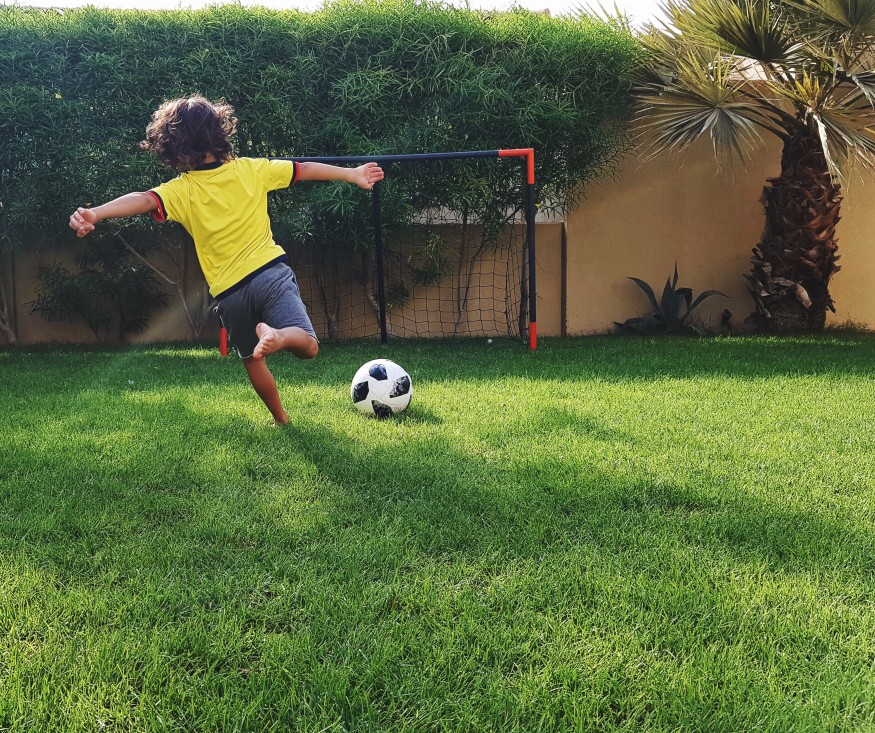
Kids who have high energy are motor-driven — they LOVE a good tactile activity.
One of the most practical ways to stay sane while raising your little one is to find different activities to keep them occupied in a constructive way. Outdoor toys and activities are often the most popular choice for moms of high-energy kids since they help reduce screen time.
Parent-assisted tricycles like Joovy’s Tricycoos are a great way to help busy toddlers burn off some energy. For older kids, balance bikes encourage independence and focus. If you have an unfinished basement, even better — clear a big open space for the kids, put on their helmets, and let them loose.
Shop Joovy Tricycles and Bikes
Connect Every Day

High energy children need to recharge too. They’re usually big on emotions, so all that hugging and cuddling is super important.
Every day, carve out at least 15 minutes or more where you and your little one can spend time together without distractions. Spend that time talking, playing, and connecting with each other. This special bonding time will help keep the lines of communication open and help your child feel secure.
Often what happens is parents find their little ones to be much more cooperative than ever before. This works with teenagers, too — our children’s inherent desire for connection never really ages away. My teenagers love the individual attention they get from mom.
Facilitate Focus
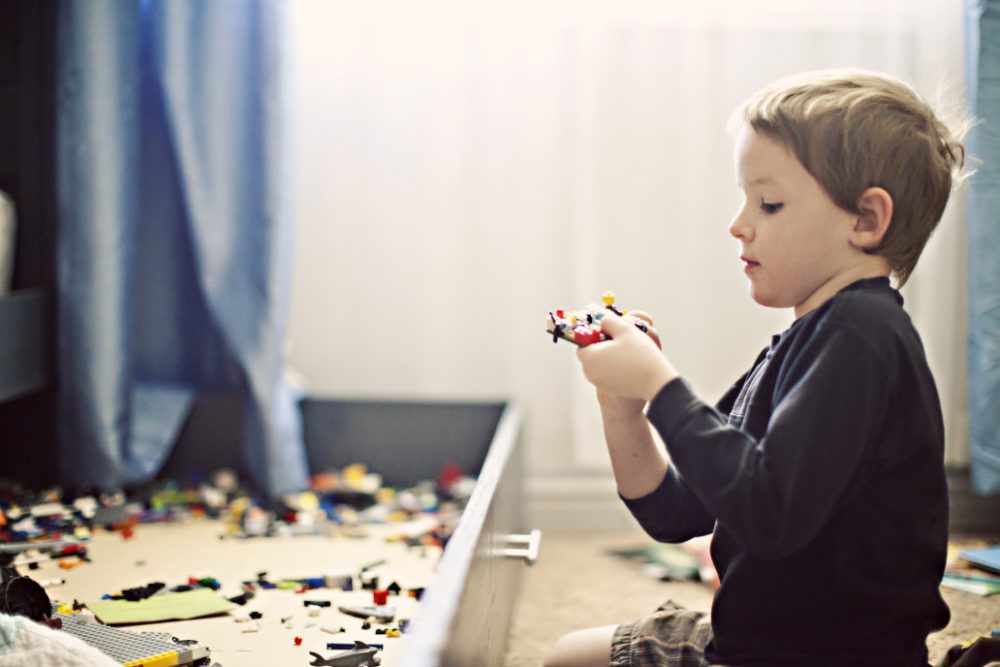
Another incredibly effective way to tackle those energy bursts is to use different techniques to help them develop focus and concentration.
Try Breathing and Pressure Techniques
Start with breathing exercises or deep pressure squeezes. Body pressure is particularly effective at calming down children with sensory issues and can help them to focus during times of stress.
Keep Them Busy
Busy kids are easier to a parent than bored kids. Give your child a space that is theirs and keep fun things in it, like a rice bottle, glitter jar, farm set, legos, or blocks. Think of things that your child loves and give them a space to play. Just make sure not to overcrowd it, and keep changing out the toys every once in a while. If you don’t do this, your child will get tired of the space. Toys will then either be thrown all over the place or not played with at all.
Limit How Many Toys Can Come Out
Keep one or two fun things out at a time. After a while, put those up and get a few more things out. Another great idea is to have a defined play space, like the kitchen table, for activities with multiple pieces.
Make Some Sensory Bins
Kids LOVE sensory bins. Head over to our sensory bin article to get tons of ideas for what to put in yours. Make sure these activities are only taken out with your permission and supervision though — they can get messy.
Prep in Advance for Being Out
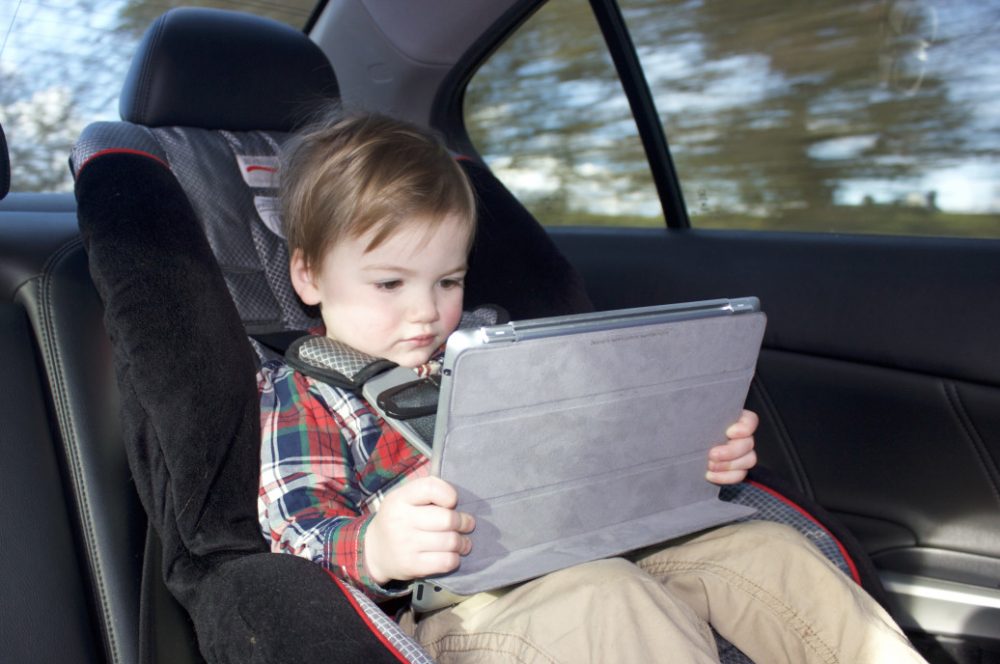
High-spirited and high-energy kids can be hard to deal with at home, and even tougher in social settings and places where kids are required to sit still, such as a movie, school, grocery store, etc. In such a scenario, prepping in advance can be an effective strategy.
Make Some Busy Bags
For starters, sit down with your little one and give them a short summary of what you’ll be doing and what is expected of them. Once they know what is expected of them, you can create an activity bag. This is a bag that is only used when you and your family are headed out, and you know you will need some reinforcements.
I have a free printable called Busy Kids Travel Bag Ideas — head on over to find the list of items that I recommend for the busy bag.
Try Noise Canceling Headphones
If you have a child with sensory issues that cause noise sensitivities, consider keeping a pair or two of noise-canceling headphones in the car for them. Kids who have sensory issues or autism don’t normally like to be out in big spaces with big crowds. Even a trip to the local Walmart can be too overwhelming with the big space, people and lights.
Involve Them In What You’re Doing
If you’re going to the grocery store, give your child a list so they can look for an item while they are riding in the cart. If your child can’t read, give them a piece of paper with several pictures on it so they can locate the items easily.
Go down the aisles where the items are located, hand your child a picture of the item, and ask them to find it. Help them out by hinting at areas it might be in. This is a great way to involve them in what you’re doing, and you’ll be sharpening their matching skills to boot!
It Starts With the Parent
Children can be difficult, especially if they are high-energy and on the go all the time. I get it because I see it all the time in my line of work.
However, the first thing I want you to think about is, a little tough, and requires you to get really honest with yourself.
Ask yourself, How am I contributing to this behavior? Am I being consistent? Am I allowing my child to know what is expected of him or her? It’s hard for some parents to hear, but working with high-energy children in a healthy and productive way has to start with the parent.
Know When to Ask for Help
If you feel that you are doing all you can with consistency and clear expectations, and you really are at your wit’s end, it might be time to seek outside help.
As Pediatric Developmental therapists, we serve children from birth to three years old in our program. For local clients, we perform in-home visits and complete an assessment. If your child is between newborn and three years old and you want to seek help from Early Intervention, please reference this information to find the specific program in your state. You do not need a doctor’s referral to enter into this program.
If your child is older than three, I would suggest seeking guidance from your child’s pediatrician or teacher if they are in school.

